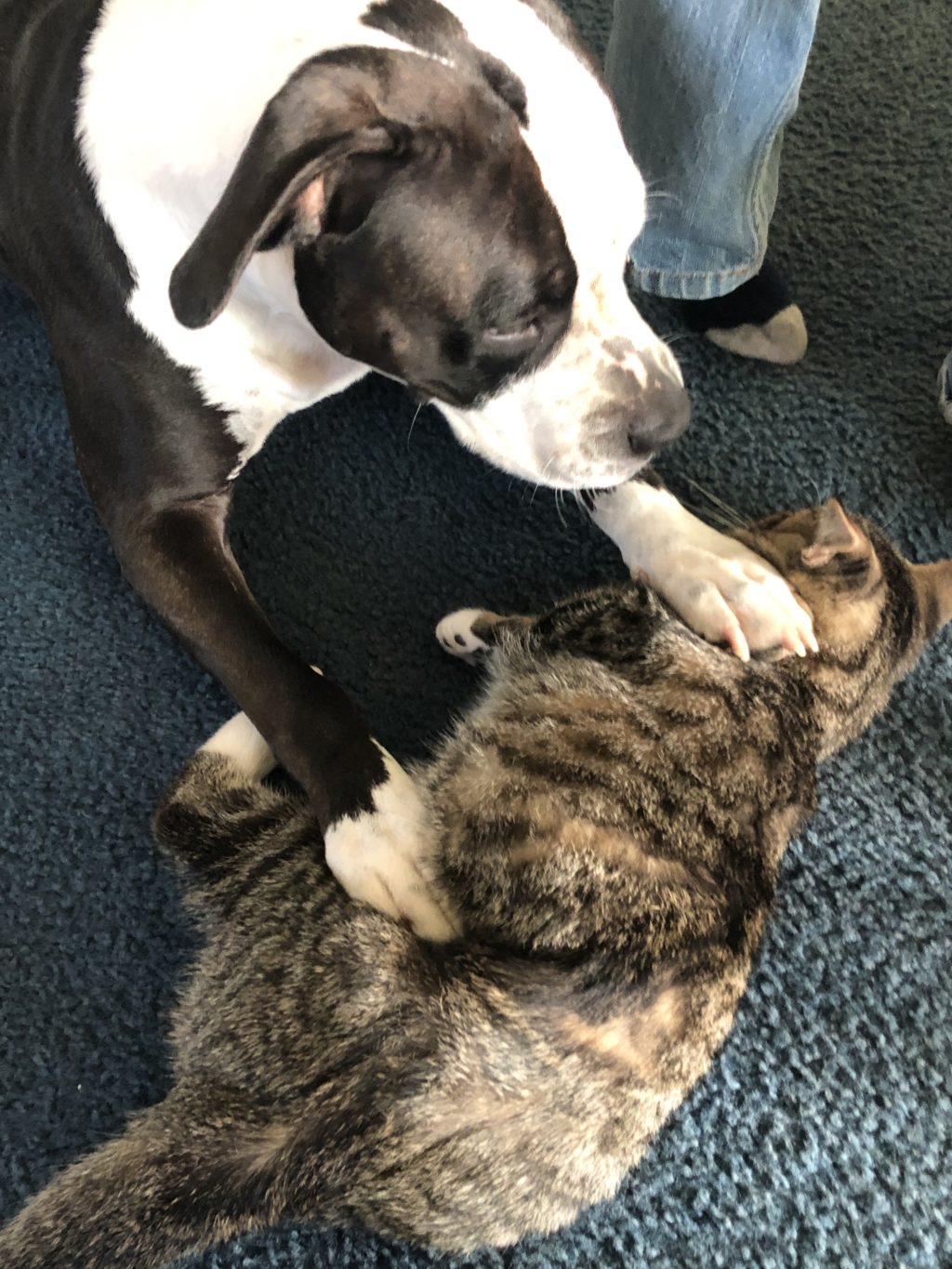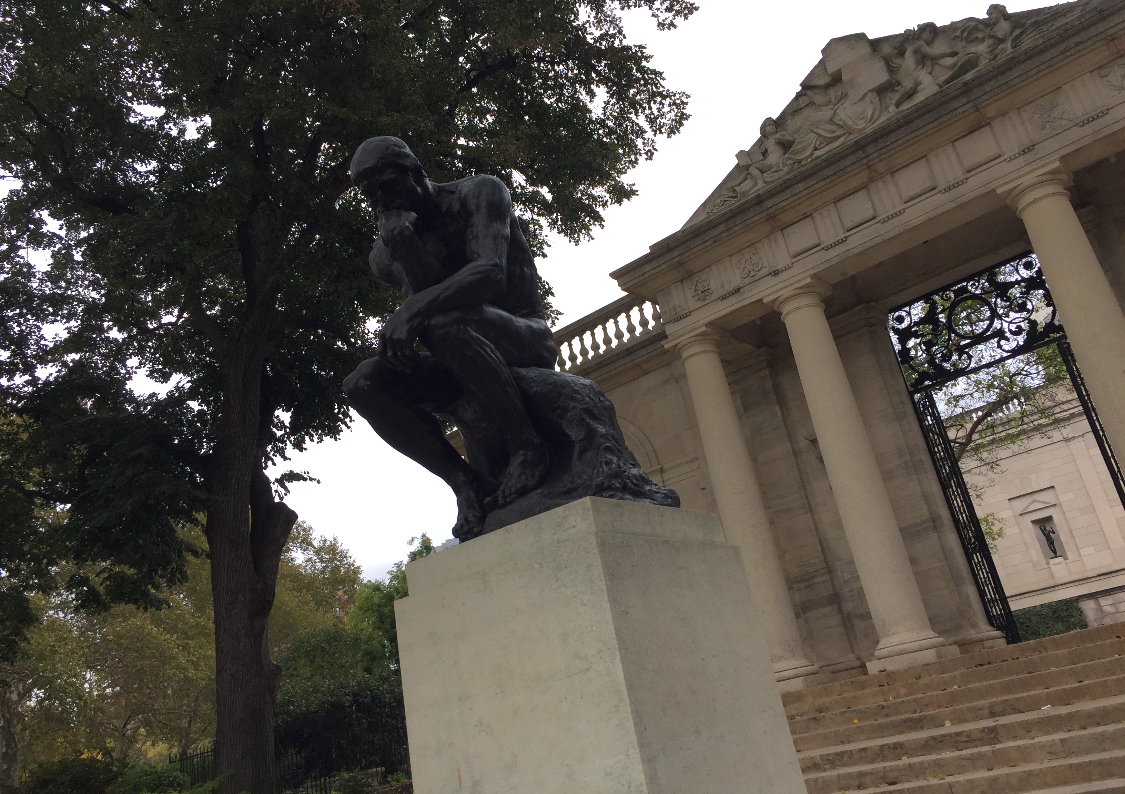
The Heart of Service
I recently had the privilege of delivering the keynote speech at two different Veterans Day events on successive evenings. While they were two very different audiences, my message was largely the same for both, with a few variations due to the nuances of each group. In each, though, I spoke about the character and heart of leadership.
While I’ve shared some similar examples before, I have come to appreciate and see with more clarity that while certain people came in and out of my life, it wasn’t simply the character of their leadership but the fundamental character of their heart that I now recognize most influenced me.
Still in the shadow of Veterans Day, let me acknowledge all of the veterans who might be reading this right now and thank you for your service to our country. Whether you served one day, one year, or an entire career, many of you made the conscious decision to volunteer your life – and many ways the lives of your families – to be part of something greater than yourself. You should be proud of that, and appreciated every day, not just on November 11th.

All who wear the uniform are pulled into service by some force, be it voluntary or compulsory. I didn’t realize it at the time, but I suspect I was at least in part drawn to military service by roots going back the revolutionary war, well documented in the four genealogy volumes my dad has published. They include:
Two WWII veteran uncles; one a soldier wounded in battle while serving in 1944 Italy, the other a sailor whose teenage son would tragically drown some 25 years later on his senior trip, never to attend one of the threemilitary academies he had been accepted to. My cousin John no doubt would have served proudly and with distinction, just like his father. Two uncles on the other side of my family, both still living in my area; one a Korean War veteran and the other a retired senior enlisted soldier. My dad a National Guard veteran; my older brother and my son, both Air Force veterans like me.
I was blessed with a very long and fulfilling military career that started in 1986. I can honestly say that through everything, I always tried hard to be the very best I could be at every level with no expectation or sense of entitlement to go to the next. I never forgot where I came from, how average I really am, and the importance of hard work. I also learned to recognize that having your head in the game is important, but it is even more important to attend the ‘heart’.
In his book The Top Ten Mistakes Leaders Make, Hans Finzel says influencing others is the heart of leadership; that the greatest impact on us as individuals comes from direct interaction with other individuals. It’s true! I never forgot the lessons I learned from a few exceptional leaders who had their head and their heart in the right place. Four leaders, in particular, through their words and actions at just the right times in my life, revealed to me the character of their heart and their concern for mine. That is the heart of leadership.
Here’s some of what I learned from these four men.
When insecure and publicly embarrassed, I learned from a Chief Master Sergeant of the Air Force that the defusing properties of humor and gratitude are powerful encouragement.
When tempted to think I was kind of a big deal, I learned from a previously feared senior enlisted leader that humility and forgiveness are two of the most respectable attributes a leader (or anyone for that matter) can have.
When dealt what seemed like a crushing blow to my career, I learned from a friend, mentor and beloved leader that failure does not define me, and well-timed encouragement and persistence can make a huge difference in a person’s life.
When cavalierly demeaned in front of others by an egomaniacal former adjutant general, I learned from a different flag officer that there is dignity, honor, and respect in standing up for others…even when the person you’re defending is a stranger.
There is nobility, strength and courage expected of those who wear the uniform and we owe veterans our gratitude, support, and recognition that not all scars are visible on the outside.
But those attributes aren’t exclusive to those who serve. When I look back over my life and career, it’s the people who influenced me and those I have influenced that I think of most – whether they wore a uniform or not.
The head is important, but the heart is the wellspring of life. That’s the heart of leadership.

Get Strong. Be Strong. Stay Strong.
Finzel, Hans. (2000). The top ten mistakes leaders make. Colorado Springs, CO: Nexgen.

The Heart of Service (Video Preview)

Take Your Mask Off
Phantom of the Opera. The story of a disfigured, bitter, reclusive musical genius who becomes obsessed with a young singer. As one of the most popular musicals of the last 30 years, it is perhaps most recognizable through the mask behind which the phantom hides. The story speaks to the human condition on many levels: loneliness, intrigue, fascination, love, possessiveness, jealousy, insecurity, heartbreak, and more. The mask alone points toward our fascination with Halloween, super heroes, disguising ourselves to extend the boundaries of our inhibitions, ‘masking’ characteristics of ourselves we don’t want other people to see, or adopting a persona more confident than we really are.
Patrick King says “If you want to be confident, you have to look confident.” But what if you’re not…and you don’t? It’s often easier to pretend to be something or someone you’re not than to ‘be real’ with others (or yourself). There are no doubt more people than we think who ‘mask’ characteristics of themselves or hide who they really are rather than risk exposing weakness, insecurity, or themselves to critics so busy pointing out others’ flaws they fail to recognize their own (cf. Matt. 7.3 about specks and planks).

Is there an appropriate balance?
It has become trendy in leadership, business, and politics to demand transparency and expect vulnerability. I don’t disagree these are necessary and, in fact, people tend to be drawn more to those who are open and engaging than those who aren’t. People who hold their cards close to the vest reveal few personal details and often come across as stand-offish, aloof, or just plain rude. As. such, I tend (perhaps incorrectly) to interpret that as a sign they don’t trust me enough to be open. I feel hurt and disappointed by that. Still, when I take time to take me out of the equation, I realize maybe they’ve erected emotional barriers to protect themselves from being hurt, used, or otherwise taken advantage of.
Maybe they’re onto something.
Are we even ready for people to take their mask off and be real with us? I sometimes wish I was less transparent or vulnerable. As a lifetime ‘over-sharer’ who tends to wear my heart on my sleeve, I know how easily and often people like that are used, hurt, or otherwise taken advantage of. Perhaps nice guys really do finish last. Another good reason to hide oneself? Or maybe it’s just a convenient excuse.
Happy Halloween!
Halloween is upon us. Literally THE time of wearing masks, hiding behind costumes, and pretending to be someone or something other than ourselves. Despite strong convictions and varying views about it among many in the faith community, Halloween has been one of my favorite holidays since childhood. Maybe it’s because for a moment in time I could be an astronaut or a cowboy; a policeman or a scarecrow; or anything I wanted to be…instead of the skinny, hyper, annoying, often unkempt neighborhood kid. I suspect similar reasons explain why some are drawn to performing on stage and screen, or other careers spent in costume. Er, I mean in uniform…

Eddy Space Program, circa 1973 
Shine On 
Scooby Snack?
The entire season is a joy for me and my family. We love cider and donuts, carving pumpkins together, decorating the house, and the smell of burning leaves in the neighborhood. Some of my fondest memories from childhood are dressing up and trick-or-treating around the neighborhood, going to the annual Lakeview Lions Club costume contest my dad emceed in the parking lot of the old Cut Rate Supermarket, and comparing the ‘take’ of goods at the end of the night. I still have a scar on my foot from unwittingly running through a pile of burning leaves in the dark as I narrowly (and excitedly) escaped some older kids seeking a shortcut to the candy mother-load!
It doesn’t need to end October 31st.
My wife and I recently attended the wedding of a friend and coworker. From the announcement to save-the-date for a party during which ‘a wedding will also take place’, we knew it would be special. It turned out to be one of the best weddings ever. The nuptials took place on the roof of the historic Detroit Opera House, followed by a masquerade party reception throughout the majestic grand foyer. Mystery, intrigue, frivolity, and self-confidence fueled by fancy clothes and fancier masks.

Inhibitions and judgment be gone!
Enjoy occasions to dress up and let your hair down…without fear of criticism. Let’s tear down barriers in our personal and professional relationships by taking off our masks and being real with one another.
How much more effective could we be in all areas of our life if we stopped masking who we really are, and allowed others to do the same…judgment free?
Get Strong. Be Strong. Stay Strong.

Happy Halloween!
Take Your Mask Off (Video Preview)

Settle Down
If you didn’t see the video preview to this article, what came to mind when you first read the title? I imagine there is a wide range across the readership. Does that make ‘settle down’ an idiom? Homonym? Does it matter? I could have equally been referring to a command your grandma barked because you were being too rambunctious while Grandpa was dozing in his rocker, as much as to the not-so-veiled “time-to-start-a-family” reminders your parents start giving you around age 30 every time you visit.
I didn’t have settling down to start a family or stifling my hyperactivity in mind when this subject came to me. Rather, it was an unexpected, unsettled feeling that crept in and is lingering. Despite its inexplicability, I’ve become all too familiar with this feeling.
An important first step in learning to ‘settle down’ is identifying the factors contributing to this feeling. Honestly, it could be any number of things, including significant financial and physical hardships of people close to me or ongoing personal frustrations and uncertainty at work. As I’ve thought through possible root causes, a book I read some years ago came to mind that might explain a few other possibilities.
Uncharacteristically, I didn’t write the date I started it in the front cover, but a boarding pass still marks a page, supporting the possibility the book was an airline terminal purchase. It was June 2013 and I was headed to Washington, DC the day before my birthday. I was familiar with its author, Patrick Morley, from his impactful book ‘Man in the Mirror’ I read some years earlier. In this more recent book, Man Alive, Morley theorizes that a significant number of men are mired in mediocrity, stifling their natural energy by settling for lukewarm (he calls ‘half alive’) existences. In Man Alive, he provides insightful reasons and symptoms that speak to its truth – including feelings of restlessness. He offers practical ways to live a more fulfilled life by addressing what he calls “seven primal needs”. These, and perhaps still not knowing what I want to be when I grow up, may explain at least some of the unsettled feelings that come and go in my life.
Morley uses the chapters of Man Alive to dig into ways to convert restlessness into fulfilled living by addressing these primal needs he lists in Chapter 1:
- To feel like you don’t have to do life alone
- To believe that God loves and cares about you personally
- To understand how your life has a purpose, that your life is not random
- To break free from the destructive behaviors that keep dragging you down
- To satisfy your soul’s thirst for transcendence, awe, and communion
- To love and be loved without reservation
- To make a contribution and leave the world a better place
As I looked these over for the first time since 2013, it was easy to recognize the primacy of these in my life. I likewise recognize how failing to properly address them could lead to restlessness or passivity. Or both.
I hesitate to end this article having you believe I’m somehow stuck in a perpetual quagmire of uncertainty or restlessness. That’s not the case. I’ve been blessed throughout my life with many opportunities that relate to the list, and overall I’m an optimistic, happy, and fulfilled guy! But I’d be lying if I told you I never feel alone; or that I don’t struggle with my thought life; or that I don’t sometimes still wonder about my true purpose.
Patrick Morley is clearly onto something. It’s also reasonable that some of what I’m feeling has to do with crossing through deep waters with others in my life. As Dr. Don Denyes of South Church recently said, ‘standing in the river’ speaks to the problems or challenges we face. He points out that maybe God allows the BIG problems in our lives to remind us we can’t handle everything ourselves like with smaller problems. I can fix a lot of things myself. But I can’t fix cancer, my mom’s dementia, or a host of other life-altering hardships faced by people close to me (and millions of others). Neither can I predict the future. But I can embrace the present, love unreservedly, help wherever & whenever possible, work unashamedly to determine & fulfill my purpose, and live by faith knowing God is ultimately the one in control.
Maybe you can, too.

To help you, I recommend either book mentioned, Man in the Mirror or Man Alive, and visiting Patrick Morley’s blog. If you are one of the first five readers to contact me either by email at strength@beyondstrength.org or comment to this post, I’ll send you a free copy of Man Alive (a donation toward shipping is appreciated but not required). I also recommend Rick Warren’s book The Purpose Driven Life.
I appreciate you joining me to find strength in weakness, improve, and make the world a better place. And I’d love to know your thoughts on other ways to ‘settle down’.
Get Strong. Be Strong. Stay Strong.
Morley, Patrick. (2012). Man alive – transforming your 7 primal needs into a powerful spiritual life. Colorado Springs, CO: Multnomah.
Settle Down (Video Preview)
Feeling unsettled? You’re not alone.

Let Sleeping Dogs Lie
How do you wake up? Mellow, sheepishly wiping the sleep from your eyes? Or do you come up swinging? I remember watching a friend gently try to wake his sleeping child. The boy jolted awake and promptly socked his dad right in the eye! Even well-intentioned stalk-climbers in every adaptation of Jack and the Beanstalk knew it was a bad idea to wake the sleeping giant. And whether he actually said it or not, I expect Admiral Isoroku Yamamoto probably realized it was a bad idea, too.
I’m finding it increasingly difficult to avoid jumping into the fray of sensitive current events. While divisive political subjects and polarizing social issues would no doubt help increase readership or a larger following, that’s not what this enterprise is about. Instead, I use this medium to take a positive look at life, leadership, and fitness in hopes of helping others and sharing common experiences. While the subject matter isn’t always happy and carefree, it is intended to provoke thought, prompt action, edify, encourage, and exhort readers to make positive change in their lives. In other words, to create beauty from brokenness and derive strength from weakness.

My reluctance to rouse the lying dog of political division or wake the giant of societal or organizational dysfunction doesn’t mean there isn’t something to be said for kissing a few frogs or awakening a sleeping beauty or two in our life, leadership, and fitness endeavors. So pucker up.
Life
Well over halfway through life on this side of dirt, I still don’t have it figured out. Selfishly I think that life’s not fair. No one said it would be…especially my mom. But if you’re like me you wonder when it’s your turn. I’ve worked hard my whole life and still don’t have a vacation home or lake house like so many others. And why do crooks, creeps, and the wicked continue to prosper? David Jeremiah put it this way in a recent Turning Points devotional. “God does bestow wealth on some of His servants, and their generosity has financed many of the great ministries that have changed the world. God also allows some of His people to live in humility, and their selflessness has also changed the lives of many people. Prosperity is no indication of righteousness, and poverty is not necessarily a virtue.”
Like Paul, I have been both in need and in plenty and am trying to be content in either. I work hard and strive to be responsible and practical. Yes, I’d love to reap a few more ‘comfortable rewards’ of that. But right now there are others in greater need, including some of my own loved ones. How dare I do nothing when I have the means to help? “Suppose a brother or sister is without clothes and daily food. If one of you says to him, ‘Go, I wish you well: keep warm and be well fed,’ but does nothing about his physical needs, what good is it?” (James 2.15-16). The lake house will have to wait.
Perhaps LIFE is ≥ this: 1) Give me neither poverty nor riches – feed me with the food allotted to me (Proverbs 30.8). 2) Be content with such things as you have (Heb 13.5). 3) Rejoice and be exceedingly glad, for great is your reward in heaven (Matt 5.12).
Leadership
Of the articles I’ve published, leadership is the most frequent topic so I’ll keep this short. Major General Perry M. Smith, Ph.D., whom I had the honor to meet and chat with in 2010, wrote an exceptional book on leadership called Rules & Tools for Leaders. It is one of my most written in, marked up, dog-eared books, in fact. Toward the end he summarizes leadership thus: “Leadership is not keeping your boss happy; avoiding trouble; accumulating power, perks, and privileges; staying really busy; or getting to the bottom of your in-box. Leadership is serving your people, serving the mission, giving power away, and raising the level of dignity and integrity in your organization.” Agreed.
Fitness
I have another fitness article in the works, so I’ll simply reiterate here some of what I’ve said before on the subject. Work hard and be consistent. Watch what and how much you eat. Know your body and what works best for you. Balance strength work with cardiovascular training. Most of us are drug free and genetically typical. Don’t compare yourself to those who aren’t. Consider reading my previous article On Fitness.
I’m not suggesting we shouldn’t weigh in on touchy subjects. They are important to our nation and society. We all have a responsibility to be respectable citizens and engage in respectful dialogue aimed at improving our world. It’s okay to disagree, but only while treating each other with dignity and respect. If you’re tempted to be dragged into a quagmire of divisiveness, disdain, or disrespect, let that sleeping dog lie.

Get Strong. Be Strong. Stay Strong.
Smith, P. M. (2002). Rules & tools for leaders. New York, NY: Berkley.
Let Sleeping Dogs Lie (Video Preview)

Entitlement: It’s My Prerogative
Picture the climactic courtroom scene from ‘A Few Good Men’. Lieutenant Daniel Kaffee engages with Colonel Nathan Jessup, asking if he ordered the code red.
Kaffee: Colonel Jessup! Did you order the Code Red?!
Judge Randolph: You don’t have to answer that question!
Jessup: I’ll answer the question. You want answers?
Kaffee: I think I’m entitled to it!
Jessup: You want answers?!
Kaffee: I want the truth!!
Jessup: You can’t handle the truth! Son, we live in a world that has walls, and those walls have to be guarded by men with guns. Who’s gonna do it? You? You, Lieutenant Weinberg? I have a greater responsibility than you can possibly fathom. You weep for Santiago and you curse the Marines. You have that luxury. You have the luxury of not knowing what I know: that Santiago’s death, while tragic, probably saved lives. And my existence, while grotesque and incomprehensible to you, saves lives! You don’t want the truth, because deep down in places you don’t talk about at parties, you want me on that wall. You need me on that wall. We use words like “honor”, “code”, “loyalty”. We use these words as the backbone of a life spent defending something. You use them as a punchline. I have neither the time nor the inclination to explain myself to a man who rises and sleeps under the blanket of the very freedom that I provide, and then questions the manner in which I provide it! I would rather you just said “thank you”, and went on your way. Otherwise, I suggest you pick up a weapon, and stand a post. Either way, I don’t give a damn what you think you are entitled to! (emphasis added)

Entitlement is defined in part as the fact of having a right to something, or the belief that one is inherently deserving of privileges or special treatment. Similar words like prerogative, license, and special favor come to mind.
I’ve wrestled with how to present this without being overly critical or getting personal. Mostly because not all people who exhibit entitlement tendencies do so with ill-intent. I think a number appear that way because they are under heavy deadline or otherwise pressured to produce results quickly, leading to the intentional (and perhaps inappropriate) leveraging of personal relationships that usurp standard protocols. It’s not always because they feel ‘inherently deserving’ of special treatment…not everyone who presents as a jerk necessarily is (although we both know many are).
A couple of verses came to mind as I thought through all this: The way of a fool is right in his own eyes. (Proverbs 12.15) and For if a man think himself to be something, when he is nothing, he deceives himself. (Galatians 6.3).
I don’t exactly know what would prompt someone from one organization to call the CEO of a different company on a weekend morning asking help with a special accommodation, knowing full-well it would lead to someone much farther down the food chain jumping through hoops the rest of weekend to make it happen.
More insidious examples point to offenders who commit acts of sexual violence against victims simply because they feel entitled; or people who commit fraud because they feel insurance companies overcharge; or insurance companies charging too much because…well, because they can.
Is it entitlement? Selfishness? Lack of humility? Neither? Something else?
I wrote in a previous article about ego and wakes of destruction left behind those who lack leadership acumen, emotional intelligence, or even basic empathy. Instead of boring you with more of the same, I’ll wrap up with few thoughts on humility versus entitlement.
In his book The Ideal Team Player, Patrick Lencioni writes of humility as lacking “…excessive ego or concerns about status.” He says “humility is the single greatest and most indispensable attribute of being a team player.” I’m not suggesting that entitlement is the opposite of humility, but it’s pretty easy to spot someone who thinks they’re all that. Many of them are the same people who feel entitled to special favor because of their position, who they know, or because they’re a little too big for their britches, as my grandma would say.
Big britches or not, here’s what I think I’m entitled to:
NOTHING.
Maybe that’s a little harsh (true or not).
I am entitled to:
- An honest day’s pay for an honest day’s work
- Protections outlined in the Constitution of the United States
- To be a good human being
Unfortunately, we are also entitled to be rotten human beings.
My hope is that the love of God and those of us who strive to be good human beings will continue to shine light into this dark world and overshadow the rottenness.
You’re also entitled to Get Strong, Be Strong, and Stay Strong.

A Few Good Men quotation retrieved 7/31/2019 from https://en.wikiquote.org/wiki/A_Few_Good_Men
Lencioni, Patrick. (2016). The ideal team player. Hoboken, NJ: Jossey-Bass.
